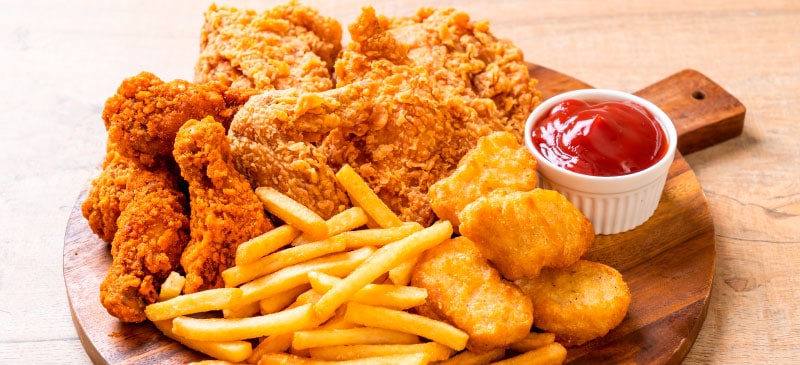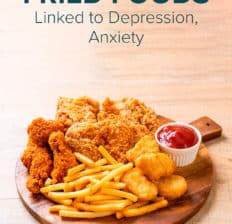This Dr. Axe content is medically reviewed or fact checked to ensure factually accurate information.
With strict editorial sourcing guidelines, we only link to academic research institutions, reputable media sites and, when research is available, medically peer-reviewed studies. Note that the numbers in parentheses (1, 2, etc.) are clickable links to these studies.
The information in our articles is NOT intended to replace a one-on-one relationship with a qualified health care professional and is not intended as medical advice.
This article is based on scientific evidence, written by experts and fact checked by our trained editorial staff. Note that the numbers in parentheses (1, 2, etc.) are clickable links to medically peer-reviewed studies.
Our team includes licensed nutritionists and dietitians, certified health education specialists, as well as certified strength and conditioning specialists, personal trainers and corrective exercise specialists. Our team aims to be not only thorough with its research, but also objective and unbiased.
The information in our articles is NOT intended to replace a one-on-one relationship with a qualified health care professional and is not intended as medical advice.
Study: High Fried Food Consumption May Have Impact on Anxiety, Depression
July 10, 2023

It’s not secret that fried and greasy foods are not the best choices when it comes to nutrition and health. It’s also no secret that many people, particularly Americans, consume far too many fried foods, such as fast food and processed foods.
Overconsumption of types of foods is thought to play a major role in the obesity epidemic, and fried food also can lead to increased inflammation and a whole slew of unwanted, unhealthy side effects. Now we can add another to the list: increased risk of anxiety and depression.
Study: Eating Fried Foods Could Increase Depression Risk
There has been concern that Western diets — such as the standard American diet — are filled with far too many unhealthy foods that in turn can have a negative impact on mental health. A study published in April 2023 by the Proceedings of the National Academy of Sciences of the United States of America (PNAS) sought to examine the role of commonly consumed fried foods in this impact on mental health, more specifically on anxiety and depression.
The PNAS researchers analyzed a population-based study with 140,728 people. The results “revealed that frequent fried food consumption, especially fried potato consumption, is strongly associated with 12% and 7% higher risk of anxiety and depression, respectively. The associations were more pronounced among male and younger consumers.”
One of the main culprits for this increased risk of these mental health conditions, according to the study authors, is the presence of acrylamide, a chemical in certain foods that forms when exposed to high-temperature cooking … such as frying.
Considered “a representative food processing contaminant in fried products” by the researchers, long-term exposure to acrylamide has been linked to depressive and anxiety-like behaviors in zebrafish, and it’s also been linked to:
- impacting the blood-brain barrier
- inducing cerebral lipid metabolism disturbance and neuroinflammation
- promoting lipid peroxidation and oxidative stress
- elevating inflammation, particularly in the brain
Ultimately, the study authors concluded:
To address a crucial knowledge deficiency concerning the correlation between fried food consumption and the risk of anxiety and depression, here we revealed that frequent fried food consumption is strongly associated with a higher risk of anxiety and depression. Notably, acrylamide is a representative contaminant in fried foods, thereby further elucidating its toxicological mode of action. We demonstrated that long-term exposure to acrylamide induces anxiety- and depressive-like behaviors via oxidative stress-mediated neuroinflammation, and unravel the underlying mechanism that PPAR signaling pathway mediates acrylamide-induced lipid metabolism disorder in brain. These outcomes are expected to both epidemiologically and mechanistically open an avenue in the significance of reducing fried food consumption for mental health and provide evidence to understand acrylamide-triggered anxiety and depression.
Healthy Food Swaps
While this isn’t great news for fried food lovers, it’s certainly isn’t surprising either. We know that these foods overall are unhealthy and often made with unhealthy cooking oils and loaded with unnatural ingredients.
The good news is it can be pretty simple to use healthier cooking methods and swap out fried food for healthier, natural food.
For starters, instead of frying foods in unhealthy vegetable oils, you can try the following cooking methods:
- Grilling — though take care to avoid grilling mistakes that can damage your health as well.
- Steaming
- Baking
- Sautéing
What about air frying? Since air fryers don’t use the unhealthy cooking oils that most fried foods are cooked in, air frying is definitely a healthier option and a great way to enjoyed fried food without the guilt — and negative health benefits.
However, it’s still important to make healthy food choices. Consuming ultra-processed foods, whether they’re fried in oil or cooked another way, is still bad for your health.
Instead, try some of the following food swaps to limit fried food consumption and potentially help lower your risk for anxiety and depression:
- Try kale chips instead of potato chips.
- Bake your own doughnuts — like these lavender lemon vegan ones — instead of buying fried ones from a doughnut shop.
- Make your own baked or air-fried turnip fries or sweet potato fries over the standard fast food French fries.
In addition, eat more natural, whole foods in place of fried foods, and consume more brain foods, such as:
- Nuts
- Turmeric
- Salmon
- Herbs and spices
- Leafy greens
- Olive oil
- Eggs
- Dark chocolate
- Coconut oil
- Celery
- Broccoli
- Bone broth
- Berries
- Beets
- Avocado











